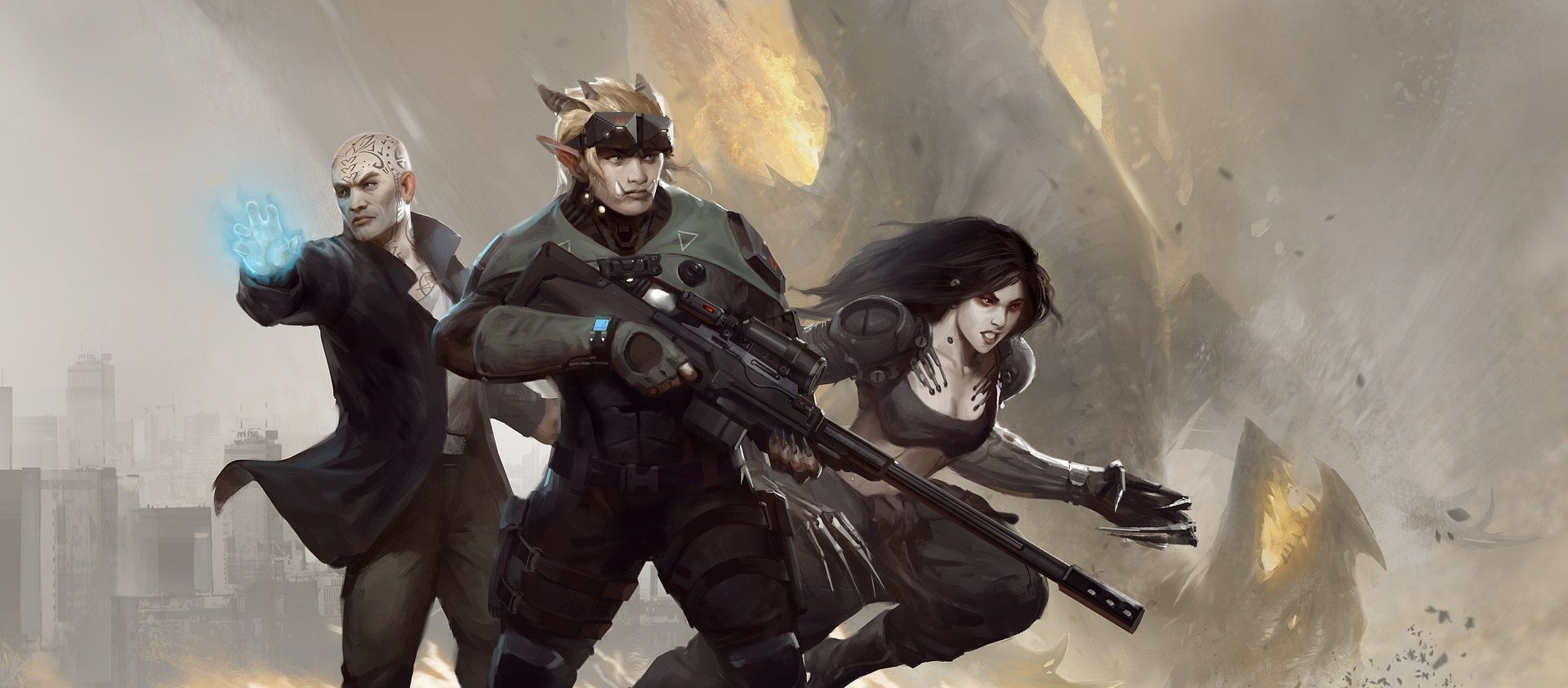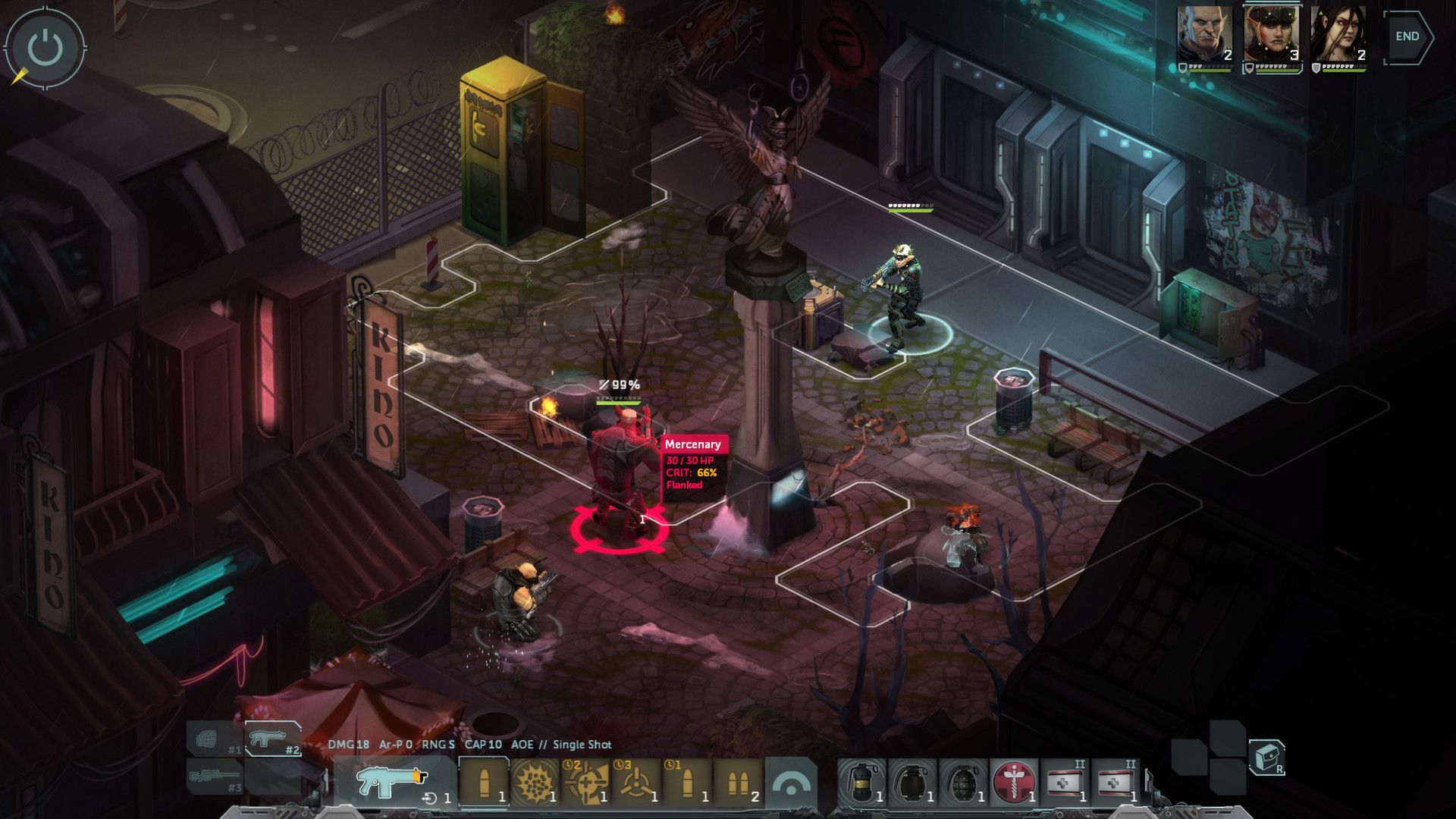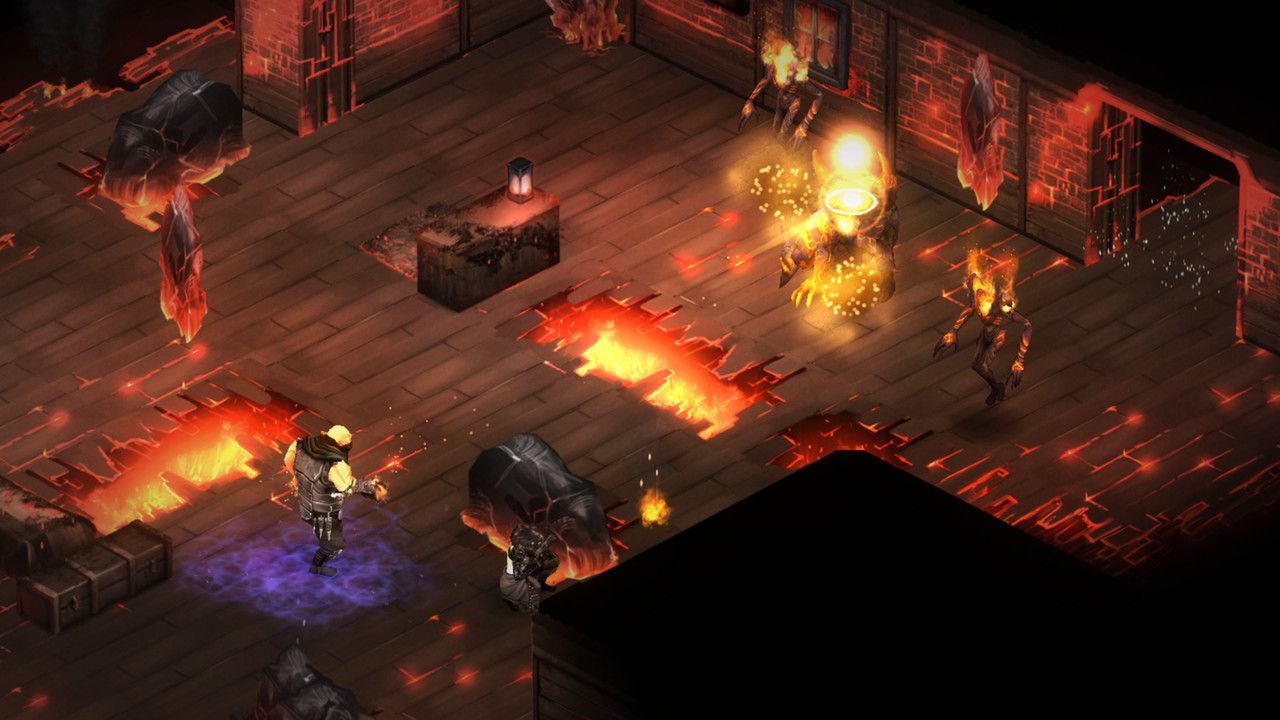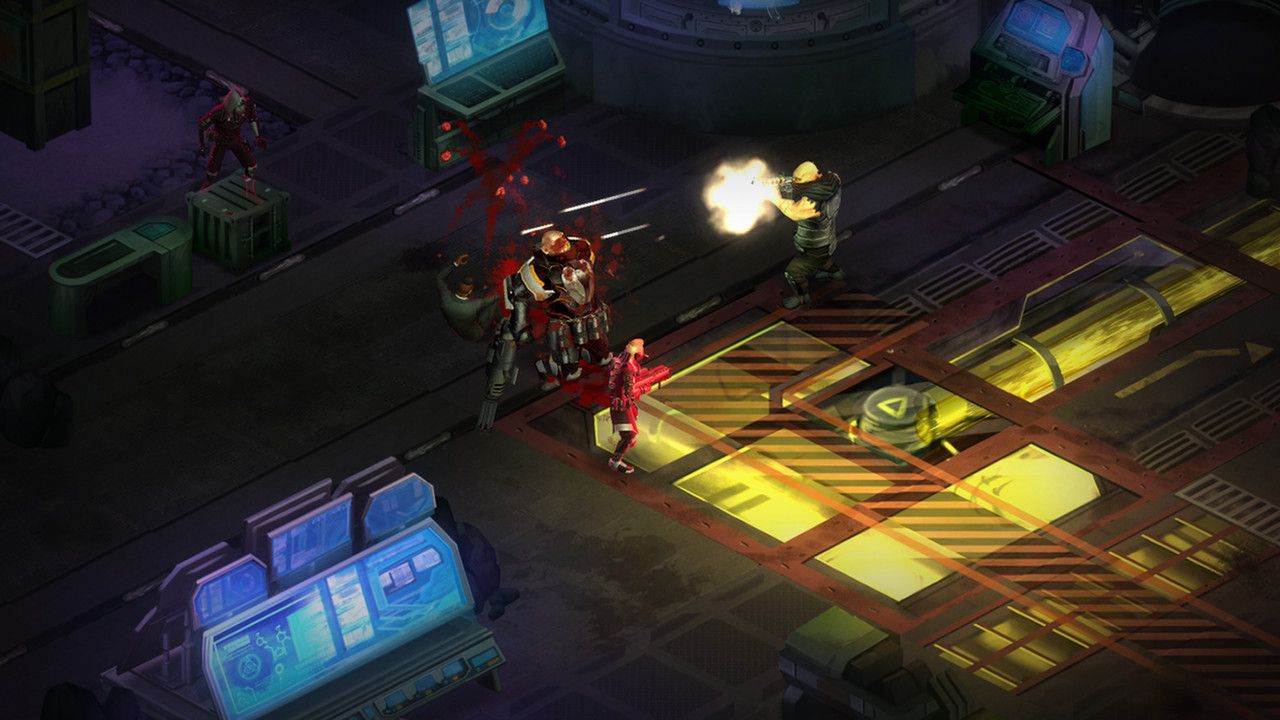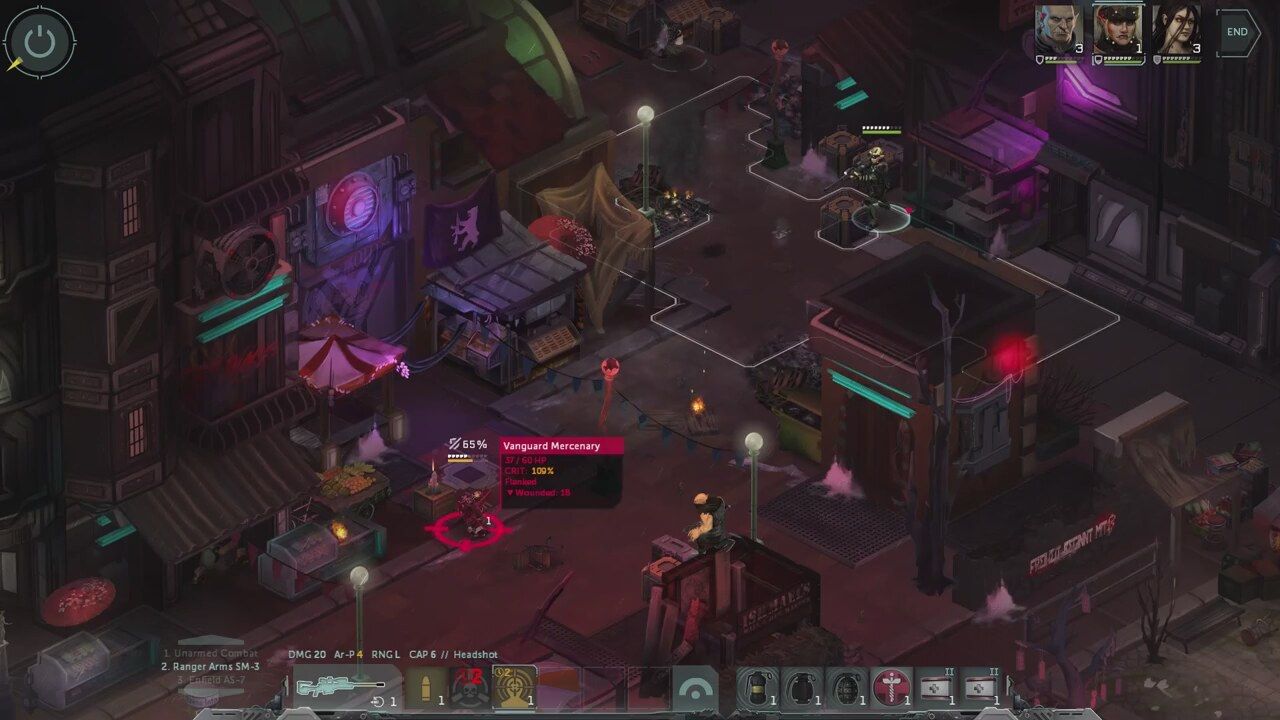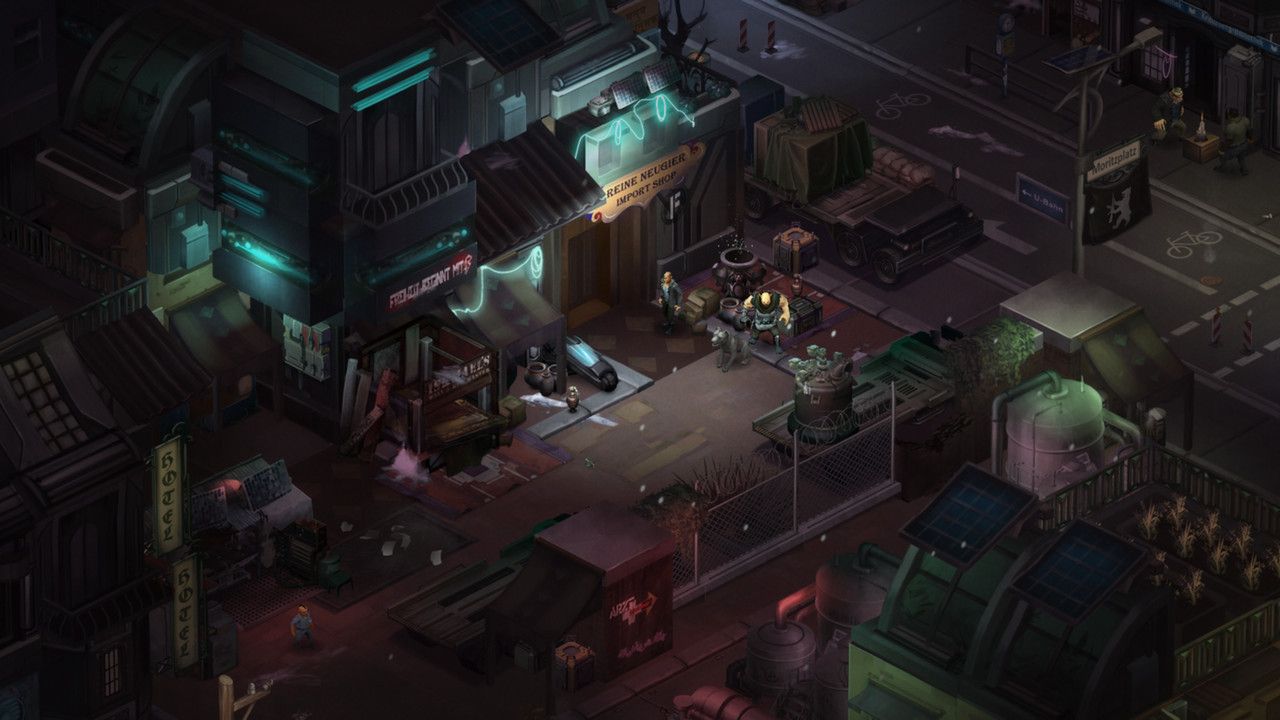If you somehow missed playing Harebrained Schemes' narrative-heavy, tactical-RPG Shadowrun Returns, or its expansion Dragonfall, well, then...shame on you. We say that because, by having not played it, you missed out on some of the best writing and tactical gameplay around. We don't say that to sound hyperbolic, either. We say that coming from a place that understands what makes games work. What draws people in. Why, at the end of the day, we all love this wonderful medium.
Shadowrun: Dragonfall - Director's Cut, despite having an absurdly lengthy title, is a stand-alone version of this year's add-on pack to Harebrained's original 2013 gem. That's significant in that, not only does the game open itself up to a wider audience, but it takes an already solid foundation and builds off it by layering on even more content to an already content-loaded endeavor. Let's take a look at that backbone off which Dragonfall plays. In our review of Shadowrun Returns, I said this about the overall experience:
"Even with the few flaws it possesses, Harebrained Schemes have knocked it out of the park with Shadowrun Returns. This is one of the most satisfying and complete tactical roleplaying experiences to come out of 2013, and realistically the last few years. It’s strong in narration, sporting one of the best scripts we’ve seen in a long time, rich in customization and solid in its combat sophistication. This is a game that unabashedly understands how to deliver the full-bodied, total package experience. To cherry the Sundae, though, the game editor means that Shadowrun Returns goes from being a game that is a handful of hours long, to one that truly could never end. And honestly, we hope it doesn’t end — we hope that community takes to the game faster than Vin Diesel to a new Fast and Furious film, because this is the type of title that deserves to be played by many, and live a long and prosperous, cyberpunk life."
Obviously, we spoke strongly about the intricacies of the game. While other developers' efforts come off as hamfisted and lacking any kind of TLC, the team at Harebrained seemed to pour every ounce of their love and passion for the Shadowrun IP into making something worthy of its heralded legacy. Upon our completion of Returns, we figured its offering could not be topped. But then came its DLC, Dragonfall. Yet again, we spoke highly of it, awarding it a 4.5/5.
"In the end, Dragonfall is a more complete and sophisticated version of last year’s Shadowrun Returns. The new campaign setting is utterly compelling, the writing is some of the industry’s finest with astounding prose and character development, and the added content simply equates to an experience that is only rivaled by the genre’s best. The fundamental gameplay is still the same, though that should be viewed as a glowing endorsement of the already refined mechanics presented in the game’s predecessor. Having said that, this isn’t a flawless experience; the various bugs and glitches, in addition to limited graphics engine, mean there are some hiccups along the way. In truth, though, these hitches are somewhat marginal when juxtaposed with everything else that the game does right. Harebrained Schemes have proven here that they are far more than a one-hit wonder, clearly demonstrating that the success of Returns was anything but mere happenstance. This is a developer that understands and loves their source material, which very evidently comes out in their work. Consequently, Shadowrun: Dragonfall is another home run for the up-and-coming studio."
Even in that review summary I spoke of the developers' adoration for their source material. A respect and understanding of that kind equates to quality results; it's true for any line of work, really - put good in, get good out. It's not just the writing that brings to life this cybernetic dystopia, it's how players connect to it all that makes the world feel alive and worthwhile. Developing empathy is not an easy feat to accomplish; it's even harder when the only way to make it happen is through fictional characters, in a fictional universe, with fictional circumstances. And yet, empathy is a vital part of bonding with a setting and subsequently feeling so sucked in, so immersed, that play-sessions, meant to last a few minutes, turn into a few hours. That's what Shadowrun Returns and Dragonfall do; they grab hold of their audience and trap them in a practically living, breathing world that feels so alluringly disheveled that it's hard to pull away from.
But if the original game delivered in this area, its DLC did so ten-times over. This was primarily because of the decision-making that pulls upon the very fabric that makes us human. To that end, the aforesaid empathy is developed quickly for the cast of personalities in Dragonfall, to the point that untimely deaths are not just tragic but deeply saddening. In both games, but especially the expansion, choices are integral to the experience. They are constantly thrown at players and have real consequences. In our Dragonfall review, we said this about their inclusion:
There seem to be more choices overall to be made too, many of which feel morally ambiguous in nature. Dialogue trees can easily fall into the trinity system of “morally sound, grey-area neutral and chaotically evil,” yet the options here never feel that clear cut — partly due to the fact that we usually get more than just three scenarios from which to choose, but also partly due to the world of Shadowrun where staunch morals often lead to a swift and untimely death. Sadly, however, some of the story is given away through these very dialogue trees, as when the box of options is presented to players in the midst of a conversation, choices that aren’t open to them based off their character archetype and skills are shown nevertheless. Occasionally, these unavailable alternatives indicate what will happen next in the interaction, which can clearly spoil some of the unfolding events and subsequent entertainment. We would have enjoyed it more had those options only been visible to the player if they indeed had the equipped necessary skills to utilize that particular dialogue selection.
But while dialogue trees are a good time, one needs battling in an RPG to acquire the full effect. This was probably the only domain of Returns and Dragonfall that needed some improvement. It's not that combat was bad -- just the opposite actually -- but it lacked a degree of substantive depth the likes of XCOM: Enemy Unknown and the more recent WARMACHINE: Tactics. In forgoing combat nuances, the game achieved an accessibility not found in other, more hardcore strategy RPGs, but at a cost.
...battles go down by way of grid-less maps in which players and the enemy take turns positioning characters around the field. Spending action points will grant movement as well as attacks, with the bulk of the strategy existing in how to use the limited number of points to maximize combat effectiveness. The battling is fairly straightforward, but rewarding all the same, seemingly less focused on nuanced components and instead emphasizing overall tactics and how to maneuver cleverly.
That's an excerpt from my Dragonfall review. Even there, I acknowledge the lack of intricacies. Well it seems that this gripe was heard by Harebrained and addressed for the release of Director's Cut. The system has been given a substantial overhaul, with a new armor feature being added to create a more dense tactical experience; furthermore, the cover and damage mechanics have been tweaked to ensure that players are using battlefield positioning more effectively. These additions, alongside a smarter AI, make encounters feel more challenging and by extension more rewarding.
That being said, everything I've quoted from my previous reviews, minus the aforementioned combat changes, applies and is in tact for Director's Cut. It's clear, then, why this standalone is a decisive winner; it takes everything that was already excellent and merely piles on a host of new features. To that end, there are several new aspects in Director's Cut that hope to leave even more of a lasting impression on its players. For starters there are five new missions, three of which revolve around members of the player's party. By serving to flesh out pre-existing characters, these five additional quests don't feel tacked-on or irrelevant, rather important to the story. A simple, but novel idea.
What's more is the redesigned interface. Though Dragonfall had many great facets, its UI was small and hard-to-understand at times. Thankfully, it's been reimagined for this latest release; spells, items and abilities are much easier to find now, and the improved combat feedback actually lets folks understand what's going on around them -- something that was far too difficult to follow previously. There's also a deeper sense of customization for party members this time around. We can basically mold team members as they grow in their roles now, with the opportunity to choose between different focus options to net them new items, abilities and the like. Players even have the option to decide a party member's loadout before combat, something that wasn't present in the preceding titles.
Lastly, the audio of Dragonfall has been added onto as well. Previously we said:
...we were humbled by the game’s cybernetic soundtrack. Thumping beats, pulsating electro-rock and gorgeous 80s revival synth ballads make for one hell of a soundtrack.
Fortunately, Jon Everist came back and produced ten new pieces that make the already brooding cyberpunk tracklist all the more complete in this definitive edition. Knowing just how much praise both game's aural presentations received, Harebrained have gone ahead and given folks the entire Shadowrun Returns and Dragonfall soundtracks digitally, for free. Yep, for free. This is on top of new Steam Achievements, Trading Cards, alternate endings, improved animations and visual effects (such as splatter and dismemberment), items and spells, post-processing effects, customization options, and edited as well as brand new writing segments. This, without a doubt, is the most robust Shadowrun game to date.
We aren't giving Shadowrun: Dragonfall - Director's Cut an official review, as it's primarily the same game released back in March of this year, just with a host of new features that only serve to make the game all the better. As it stands, it's the definitive Shadowrun experience, and is easily one of the best, if not the best, tactical-RPGs of 2014. Do yourself a favor and buy the game. Director's Cut is clearly worth every penny.

